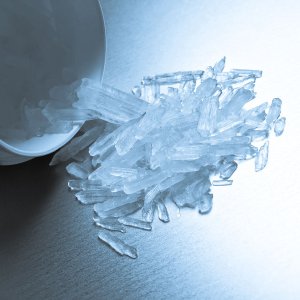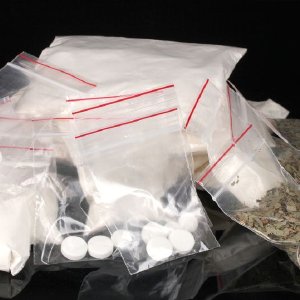Meth Abuse Among American Teens

Methamphetamine is a highly addictive, highly dangerous synthetic drug substance. Also known by the nicknames Meth, Speed, Chalk, and Tina, this stimulant drug is a type of amphetamine, which is a drug that acts on the central nervous system in order to produce the desired effects. Methamphetamine is considered to be the most potent of all available amphetamines. More specifically, methamphetamine stimulates the brain’s production of dopamine, a natural chemical that is involved in the processes of pleasure, reward, motivation and motor function. This over-production of dopamine causes the individual to experience a euphoric rush or high, which is why most individuals desire to take the drug. Unfortunately, it can also drive the individual to continue taking the drug over and over again in an effort to maintain the rush or high, during which time the body’s ability to naturally produce dopamine and the individual’s ability to naturally feel pleasure is reduced or even eliminated.
Meth and American Teens
While methamphetamine use has fluctuated over the past four decades, it continues to be a problem among American teens. The Statewide Meth Use and Attitudes Survey, released by the Idaho Meth Project in 2008, indicated that forty-five percent of the teens surveyed admitted that methamphetamine is readily available to them, while another thirty percent admitted that they had been offered the drug. Additionally, twenty-two percent believed methamphetamine would make them happy, twenty-five percent believed it would help them to lose weight, twenty percent felt there was no risk in trying it, forty-one percent admitted they haven’t attempted to dissuade their friends from taking it, and twenty-two percent believed their friends wouldn’t give them any trouble for using it. Studies in other states yielded similar results, indicating that American teens are terribly under-educated in the truth about this dangerous drug, and are therefore at great risk of suffering from methamphetamine abuse and addiction problems.
How to Spot a Meth User
Methamphetamine users are often driven to use this drug every day in order to not only continue experiencing the desired euphoric rush or high but also to avoid the let-down that comes after this rush or high. Tolerance, addiction, and dependence can develop quickly, sometimes after just a few uses. This means that a teenager who is abusing methamphetamine will dangerously increase the quantity of the drug they take in an urgent effort to continue experiencing the desired rush or high. Obviously, this is incredibly dangerous, which makes it all the more important for a teenager to receive the help they need as quickly as possible. To that end, here are some tips for spotting a teen meth user:
- Increased heart rate and respiration
- Irregular heartbeat
- High body temperature
- Decreased appetite
- Inability to sleep
- Increased physical activity
- Anxiety
- Confusion
- Extreme weight loss
- Tooth decay and tooth loss
- Risky sexual behaviors
- Hallucinations
- Delusions
- Paranoia
- Euphoric moods
- Incessant talking
- Dilated pupils
- Dry, itchy skin
- Shaky hands
- Excessive sweating
- Violent or aggressive behavior
- Skin lesions and sores
While methamphetamine use can cause great harm to any individual, it can be particularly destructive in teens, who may experience permanent brain damage, structural and functional changes in the brain, and more.
Resolving Meth Abuse or Addiction
Methamphetamine abuse or addiction should be treated as soon as possible through professional, in-patient rehabilitation treatment services. A teen who is seeking to recover from methamphetamine abuse or addiction will need to work through challenging withdrawal symptoms such as severe agitation, anxiety, sleeplessness, intense cravings, and more as part of their detoxification, which is best accomplished with medical supervision. Following this detoxification, the teen will need to resolve the many causes and effects of their methamphetamine use and lay the foundation for a healthier future. It can be a long, challenging journey to full recovery, and the teen will need all of the support and encouragement they can get.
If you know someone who is struggling with methamphetamine abuse, contact Narconon Arrowhead today at (877) 508-8151.


